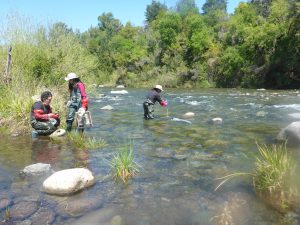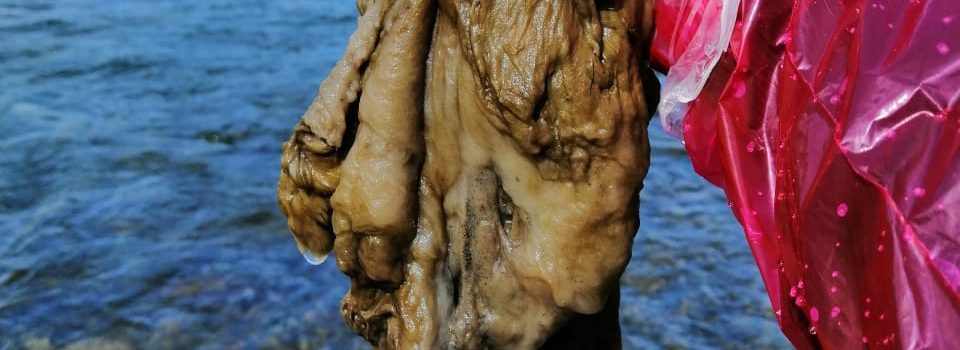For the first time Subpesca joins international network and publishes free and open access data on exotic pests.
December 10th, 2021 The information, compiled together with MMA and IFOP for “Global Biodiversity Information Facility”, is about Didymo, a species present in freshwater bodies in the south-central zone of Chile.
The information, compiled together with MMA and IFOP for “Global Biodiversity Information Facility”, is about Didymo, a species present in freshwater bodies in the south-central zone of Chile.
At the end of 2020, the Ministry of the Environment (MMA) invited Fisheries and Aquaculture Undersecretariat (Subpesca) to participate in “Global Biodiversity Information Facility” (GBIF), an international network that, with more than 1,200 public organizations and private companies present in 123 countries, seeks to provide the community with free and open access to biodiversity data.
Subpesca accepted this invitation and since then, together with the MMA and also Fishing Promotion Institute (IFOP), has worked on “Monitoring of plague species Didymosphenia geminata in water bodies of the south-central zone of Chile, Stage I (2016 – 2017) ” project data publication. An interinstitutional work, whose dataset you can review at https://www.gbif.org/dataset/9b7806e5-bd00-46c3-a5e1-3b3ee5c0e7f1
Publication DOI: https://doi.org/10.15468/wryneh
With this valuable information, Subpesca has become the third public service in the country that provides free and open access to data sets on GBIF platform. Likewise, it is the first institution to make available data on an invasive alien species worldwide, which has 330 monitoring events and 1,320 associated occurrences, in addition to 990 records of environmental variables, between Ñuble and Magallanes regions and Chilean Antarctica.
A more than relevant initiative, considering that Didymo (Didymosphenia geminata) was officially detected in 2010 and declared a pest species the same year, within the framework of the Hydrobiological Pest regulation. This, because it is a threat to freshwater bodies such as rivers and lakes, the flora and fauna that inhabit these spaces, and also recreational fishing and tourism.
Subpesca in the context of its Permanent Research Program (ASIPA), defined in article 91 of the General Law on Fisheries and Aquaculture and which mainly executes IFOP, continues to generate a significant amount of biological and scientific information through different studies and programs monitoring.
With this action, Chile advances in fulfillment to its commitments derived from Convention on Biological Diversity (CBD), especially in goal 19 of Aichi, to share knowledge on biodiversity. In turn, it contributes to the UN Sustainable Development Goals (SDGs) and to one of the fundamental functions of the MMA: to facilitate publication and access to the biodiversity data that the country generates.
Source: https://www.subpesca.cl/portal/617/w3-article-112910.html
